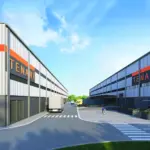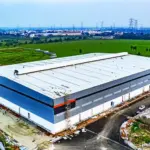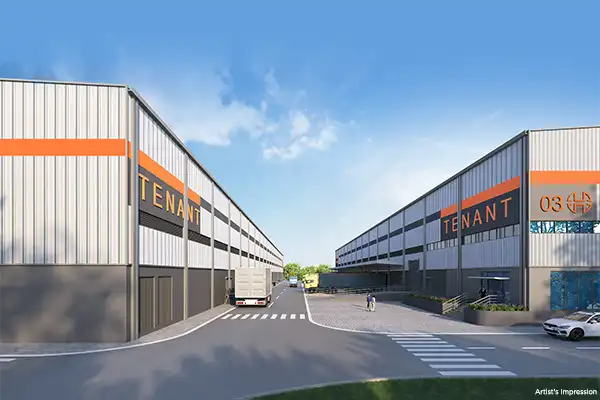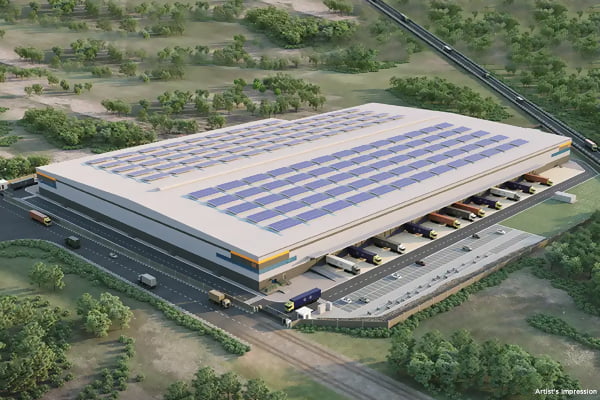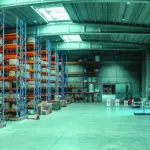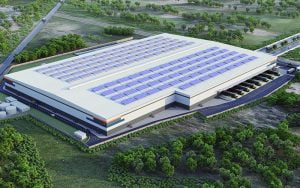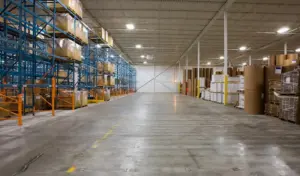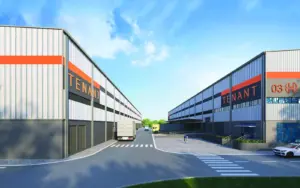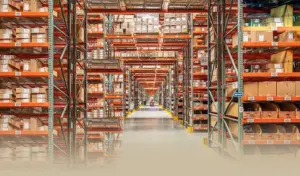As the demand for e-commerce continues its upward trajectory, the popularity of built-to-suit Warehousing Storage Solutions tailored to specific requirements rises with it as well. This article will explore and address your questions like. What these built-to-suit warehouses are and why do they hold immense value for e-commerce retailers and logistics firms?
A Built-to-Suit Warehouse.
A built-to-suit warehouse, as the name implies, is a warehouse type designed to meet the specific needs of a particular client. They are then leased out to lessees and configured according to their unique specifications.
Subsequently, the client enters into a rental agreement for the warehouse space, with the possibility of renewal in the future.
This customised design comes to life, providing the client with versatility and adaptability, fully aligning with their requirements and enabling efficient management of their logistical demands.
The Growing Relevance of Purpose-Built Warehouses.
Amidst the gradual phasing out of traditional brick-and-mortar retail, a significant portion of businesses has transitioned to the realm of e-commerce. Although there will always be a preference for physical stores, the post-COVID era has witnessed an increasing shift toward online shopping, spanning even groceries and medication procurement.
This trend underscores the surging demand for built-to-suit warehouses, and this demand is projected to persist. In India alone, e-commerce sales have jumped by a whopping 140 per cent growth in FY2020, amounting to a colossal $25 billion. (source: businesstoday) The surge in online orders necessitated more efficient warehousing and enhanced supply chain management.
Built-to-suit warehouses are gaining traction due to their ability to be tailored and developed to suit the specific requisites of tenants while simultaneously accommodating future growth. Businesses aspire to meet the growing demand for speedy deliveries to customers, and an optimised warehouse serves a pivotal role in this pursuit.
Key Considerations for a Purpose-Built Warehouse
Developing a built-to-suit warehouse requires careful consideration of various facets by the client, such as:
1. Location: The warehouse’s location holds paramount importance for logistics and supply chain operations. It must not only address storage needs but also be strategically situated. For instance, proximity to key transportation infrastructure is essential for streamlined goods movement.
2. Size: The warehouse’s dimensions should aptly cater to existing operational requirements while allowing for expansion in the future.
3. Cooperation Model: Prior to commencement, client and developer collaboration determines whether the warehouse will be leased or purchased outright.
4. Functionality: The intended use of the warehouse—be it sorting, light or heavy production, etc.—shapes its design and layout.
Hiranandani Industrial Parks, the provider of the largest built-to-suit warehouse for rent in Chennai, has meticulously addressed all these factors to provide its clients with a comprehensive solution.
Advantages of built-to-suit Warehouses for Businesses
What makes built-to-suit warehouses a compelling choice for e-commerce enterprises? What benefits do they offer?
1. Cutting-Edge Technologies: Pioneering developers in this field are at the forefront of innovation, introducing advanced technologies. These tech advancements can be made accessible to lessees, enhancing operational efficiency. For instance, automation and robotics minimise labour costs while optimising warehousing processes. Coupled with a refined supply chain management system, e-commerce entities can achieve heightened excellence.
2. Tailored Precision: The notion of a one-size-fits-all approach no longer suffices for warehousing. Each e-commerce business possesses unique attributes. As such, conventional warehouses fall short. Built-to-suit warehouses are specifically tailored to a business’s characteristics and distinct needs which offers them a pronounced edge.
3. Financial Ease: Most developers shoulder the equity and debt associated with new projects. This spares lessees from heavy investment burdens, allowing them to focus on business growth while fulfilling their rental obligations.
4. Tax Benefits: In numerous instances, lease payments can be tax-deductible for lessees. Although tax regulations vary across states, consulting legal experts in your region can help you uncover substantial savings.
5. Attractiveness for Third-Party Logistics (3PL) Companies: It’s not only e-commerce retailers that have their eyes on BTS warehousing; third-party logistics companies (3PLs) are also actively seeking exceptional BTS spaces to drive their expansion. This trend brings promising prospects for businesses aiming to partner with logistics firms. By collaborating with a 3PL, these businesses can not only delegate their supply chain management needs but also entrust their warehousing demands to experts in the field.
Concluding Thoughts
BTS warehouses have emerged as an optimal solution for businesses seeking tailored warehousing spaces. This approach is economically advantageous compared to retrofitting an existing warehouse to align with specific needs.
As the e-commerce landscape burgeons and consumer expectations amplify for prompt and efficient deliveries, businesses must adapt and surmount common supply chain challenges. The foundation of an efficiently optimised warehouse, positioned advantageously, will definitely serve as a formidable starting point.




